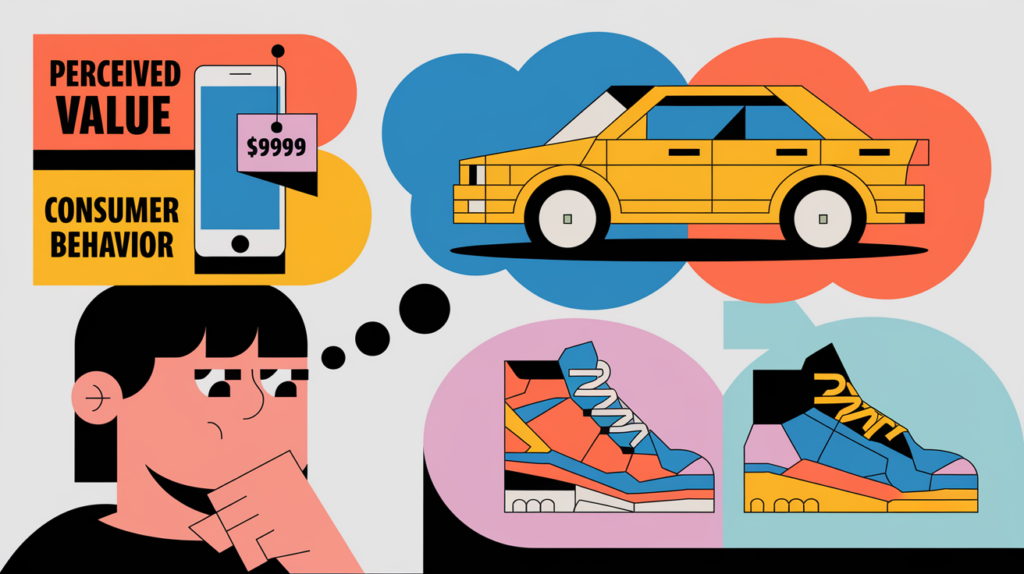Have you ever bought something, not because you needed it, but because it made you feel cool or part of something bigger? That’s the power of perceived value! In a recent podcast, Rory Sutherland, a marketing expert, talked about how companies like Apple and Tesla use psychology to make us see the value in their products. This article breaks down his fascinating ideas in a way that’s easy to understand.
What is Perceived Value?
Think of it like this: Imagine two t-shirts. One is plain white and costs $5. The other has a cool logo and costs $20. They’re basically the same quality, but the logo makes you think the second shirt is better, even if it’s just a feeling. That’s perceived value! It’s not about how good something actually is, but how good we think it is.
The Power of Storytelling
Brands are great at telling stories. Remember those old KFC commercials with Colonel Sanders? That story made people feel connected to the brand, like they were part of something special. Tesla does this too, by making their cars seem like the future of driving. These stories make us want to buy their products, even if there are cheaper options.
Why Uncertainty Stresses Us Out
Sutherland also talked about how much we hate not knowing things. Think about waiting for a ride. It’s not just the waiting that’s annoying, it’s not knowing when the ride will arrive! Uber figured this out. Their app shows you exactly where your driver is, which makes the wait less stressful. This simple feature adds value to their service, even if it doesn’t make the ride any faster.
How Companies Use Psychology
- Making things seem special: Limited editions or hard-to-get items seem more valuable, even if they’re not that different.
- Playing with our emotions: Brands use ads to make us feel happy, excited, or even a little scared to get us to buy their stuff.
- Creating a sense of belonging: When we buy something from a brand we like, it can feel like we’re part of a group.
What You Can Do
- Think before you buy: Don’t just fall for the hype! Ask yourself if you really need something or if you’re just buying into the story.
- Look for real value: Compare prices and features. Don’t pay extra just for a fancy logo or a cool story.
- Be aware of your emotions: Pay attention to how ads make you feel. Are they trying to manipulate you?
Conclusion
Understanding how perceived value works can help you make smarter choices and not fall for marketing tricks. Remember, it’s okay to buy things you like, but make sure you’re getting real value for your money!
Want to learn more about how companies use psychology to influence your choices? Check out Rory Sutherland’s book, Alchemy: The Dark Art and Curious Science of Creating Magic in Brands, Business, and Life. You can find it here.
This guide is intended for informational purposes and does not constitute legal, tax, or financial advice. Readers are encouraged to consult professional advisors to address their specific circumstances.




 anywhere
anywhere  anytime
anytime